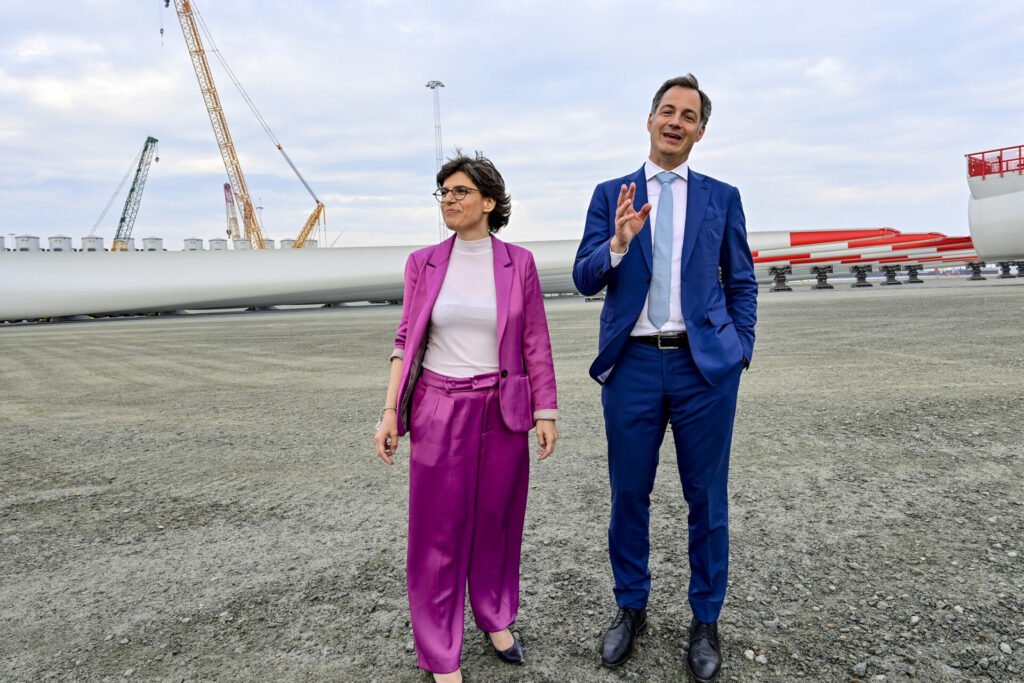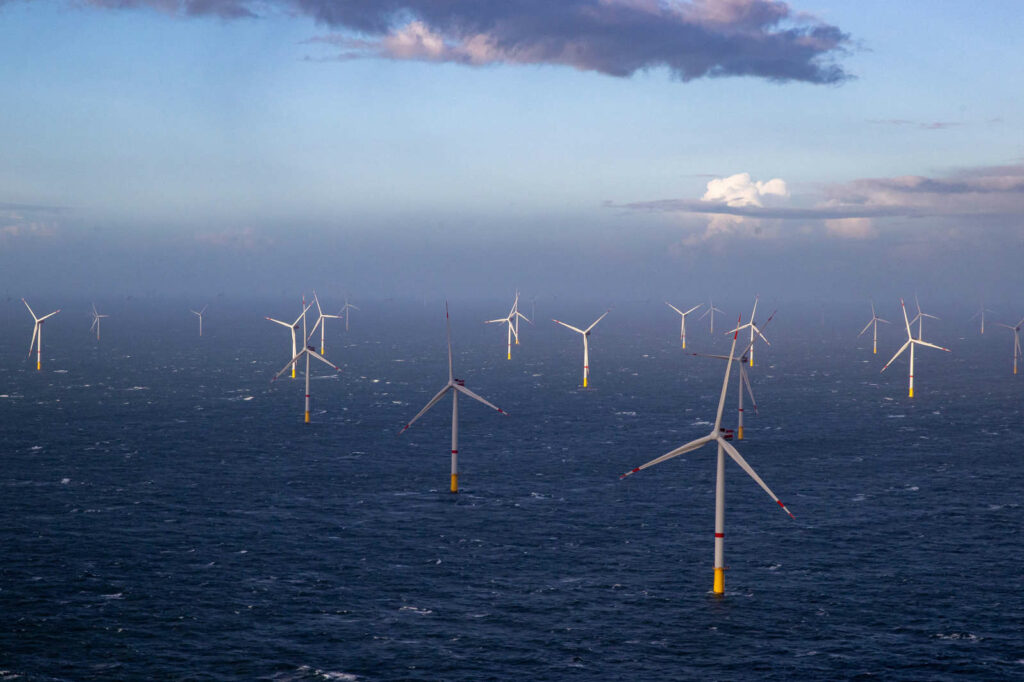Belgium is the only European country at risk of failing to meet its own imposed offshore wind energy target by 2030, according to a new study by environmental organisation WWF on Thursday.
The European Commission in 2020 launched a strategy to build a total of 60 gigawatts of wind farms by 2030. Since then, Member States have pledged to build offshore wind turbines to produce some 111-116 Gigawatts. For one Gigawatt, about 100 offshore wind turbines are needed.
"Offshore wind energy is essential to building a green and secure energy system and to meeting our climate targets," said Arnaud Van Dooren, Renewable Energy Policy Officer at WWF Europe. "While sufficient space at sea has mostly been allocated, Member States must select projects that support a just transition at sea and help coastal communities reap the benefits of a renewables-based economy."
The fact that European countries have pledged more wind turbines than Europe is asking for is good news, according to WWF. However, all these offshore wind farms also require the necessary space, and that is precisely where the problem lies.
'Too crowded'
Data analysed by WWF show that of the ten European countries that have set themselves a target, Belgium is the only one at risk of missing it: the country is not providing enough space in the North Sea while building additional wind turbines threatens protected nature reserves.
Every country on the North Sea is allowed to use a certain area for economic purposes. For Belgium, this comes down to 3,454 km². Currently, it has 15.1% of that space reserved for wind farms. By 2030, Belgium wants to build some 6 Gigawatts of wind turbines in the North Sea. However, this will require 24.82% of the available space, according to WWF.
"The problem is that it is getting too crowded in our part of the North Sea," said Van Dooren. "The [outgoing] Federal Government is evaluating how to use that space in two years: that's when the current marine spatial plan expires. We ask Belgium to cooperate more with neighbouring countries; the Netherlands, the United Kingdom and France are also building plenty of wind farms in the North Sea but a global vision is missing."
That lack of planning has an impact on marine life, the organisation stressed. Belgium, along with Germany, is already the only country with wind farms in protected nature reserves in the North Sea. These include the 'Flemish Banks' and the 'Vlakte van de Raan,' where numerous protected birds and seals live. The wind turbines, however, could lead to higher bird mortality.

Energy Minister Tinne Van der Straeten (left) and Prime Minister Alexander De Croo. Credit: Belga/Philip Reynaers
Therefore, it will be a challenge to meet the Belgian target without affecting even more protected nature areas. WWF advises Belgium to cooperate more with other North Sea countries and bet on other forms of renewable energy.
Outgoing Federal Energy Minister Tinne Van der Straeten (Groen) understands WWF's concerns but stresses that the target will not be compromised. "We will reach the targeted 6 Gigawatts by 2030: partly by placing wind turbines close enough to each other to maximise use of existing zones."
"We agree with WWF that more space should be provided for offshore wind and that this space should not be at the expense of protected nature areas," Van der Straeten's office added. She advocates expanding the reserved North Sea area and says she also wants to deploy other renewable technology in the area in the future, such as floating solar panels.
"Cooperation with other European countries is also in full swing, including the nature-inclusive energy island and ongoing cooperation with Germany, the Netherlands, UK, Ireland and France."

